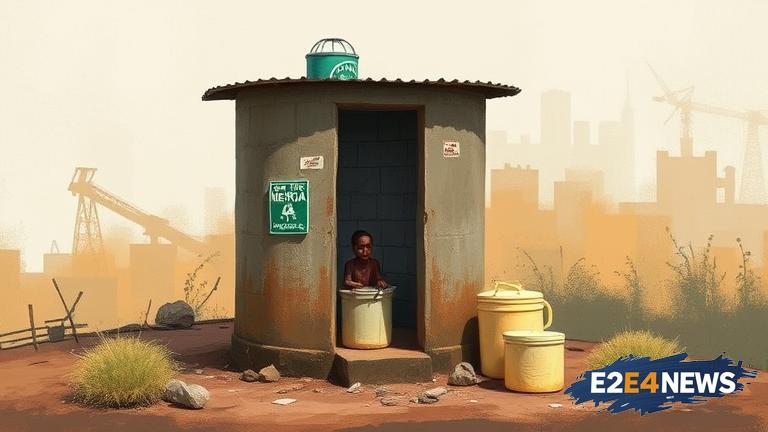A recent report by the United Nations Children’s Fund (UNICEF) has shed light on the dire state of sanitation in Northwest Nigeria, where a staggering 75% of the population lacks access to basic sanitation facilities. This alarming statistic underscores the significant challenges faced by the region in terms of healthcare, education, and economic development. The lack of proper sanitation infrastructure has severe consequences, including the spread of waterborne diseases, malnutrition, and poor hygiene practices. The situation is further complicated by the region’s rapid population growth, urbanization, and climate change, which exacerbate the existing strain on limited resources. UNICEF has emphasized the need for urgent investment in sanitation infrastructure, including the construction of toilets, latrines, and wastewater management systems. Moreover, the organization has called for increased awareness and education on the importance of proper hygiene and sanitation practices, particularly among vulnerable populations such as children, women, and rural communities. The Nigerian government has acknowledged the crisis and has pledged to increase funding for sanitation projects, but more needs to be done to address the scale and complexity of the issue. International partners and donors have also been urged to provide support and technical assistance to help bridge the sanitation gap in Northwest Nigeria. The region’s sanitation crisis has significant implications for the country’s overall development, including its ability to achieve the Sustainable Development Goals (SDGs) related to health, education, and poverty reduction. Furthermore, the lack of access to sanitation facilities disproportionately affects marginalized communities, perpetuating cycles of poverty and inequality. In response to the crisis, UNICEF has launched initiatives aimed at improving sanitation coverage, including the construction of community-led total sanitation (CLTS) facilities and the promotion of hygiene practices through schools and community outreach programs. However, these efforts require sustained support and funding to ensure their long-term impact and scalability. The Nigerian government and international partners must prioritize sanitation as a critical component of the country’s development agenda, recognizing its interlinkages with health, education, and economic growth. By addressing the sanitation crisis in Northwest Nigeria, the country can make significant strides in reducing poverty, improving health outcomes, and promoting sustainable development. Ultimately, the fate of millions of Nigerians depends on the collective efforts of governments, international organizations, and civil society to prioritize sanitation and hygiene as essential human rights. The international community must rally behind Nigeria to support its efforts to address the sanitation crisis, recognizing the far-reaching consequences of inaction. As the country continues to grapple with the challenges of sanitation, it is essential to acknowledge the resilience and resourcefulness of Nigerian communities, who are working tirelessly to improve their living conditions and demand better services from their leaders.
